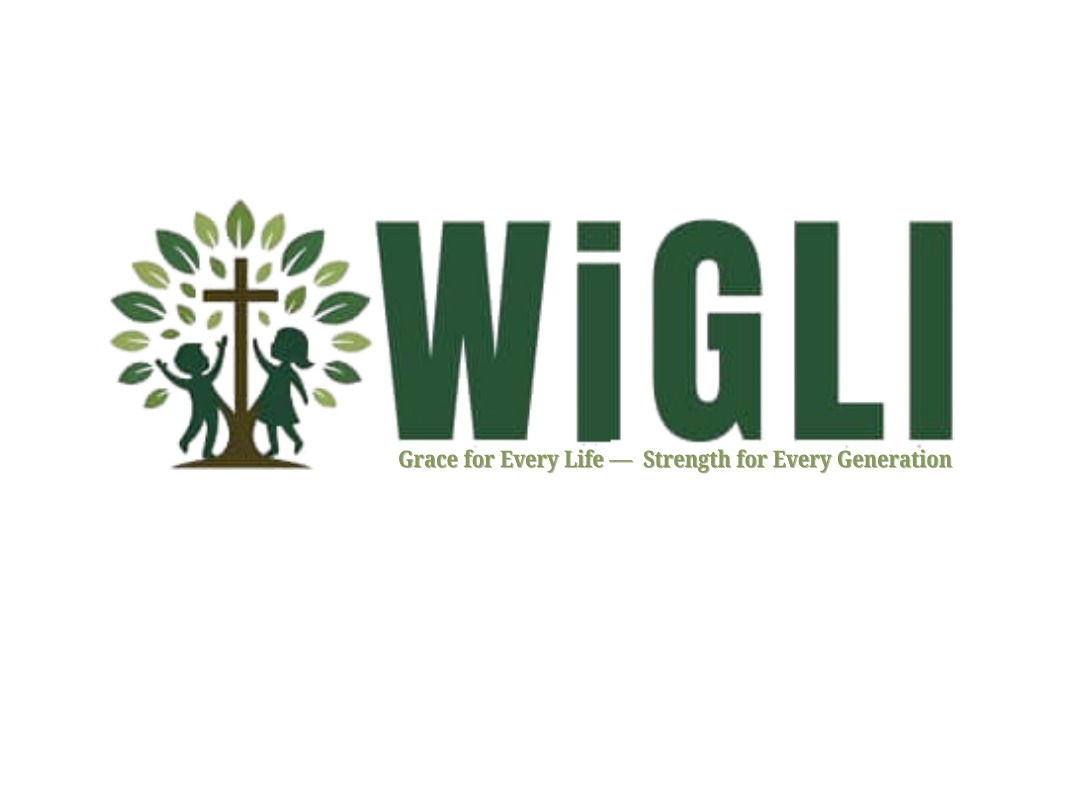Child Health & Lifesaving Services
A. Child Health & Lifesaving Services
At WiGLI, we believe that every child has the God-given right to grow up healthy, safe, and full of potential. Our Child-First Health Model integrates preventive, promotive, and curative interventions to address the most pressing health needs of children from birth through adolescence. By combining household-centered care, community outreach, and strong referral linkages, we ensure no child is left behind—especially in underserved rural areas.
Key Components
- Immunization, deworming, and routine child growth monitoring
- Treatment of common childhood illnesses such as malaria, pneumonia, and diarrhea
- HIV prevention, testing, and linkage to care for children, adolescents, and caregivers
- Organization of Child Health Days and strengthened referral systems for timely care
- Health literacy sessions for caregivers, including education on nutrition, disease prevention, and HIV awareness
We deliver services through:
- Direct Health Service Provision at community and facility level.
- Community Mobilization using trusted local leaders and faith networks.
- Partnership with Health Systems to strengthen capacity, coordination, and sustainability.
Key Program Components & Service Areas
Preventive Care
Preventing illness is the most cost-effective and life-saving strategy. WiGLI's preventive care ensures children receive essential services on time, protecting them from diseases that can hinder growth, learning, and development.
Service Details:
- Routine Immunization: In partnership with local health facilities and outreach teams, we ensure full vaccination schedules for infants and children, including vaccines against measles, polio, tetanus, diphtheria, pertussis, and hepatitis B. We focus on reaching remote and marginalized communities where immunization rates are low.
- Deworming Campaigns: Semi-annual administration of WHO-recommended medicines in schools, clinics, and Child Health Days to eliminate intestinal parasites, improving nutrient absorption, reducing anemia, and supporting growth and learning capacity.
- Routine Growth Monitoring: Regular measurement of weight, height, and MUAC to identify malnutrition or developmental delays early. Children at risk are referred for nutrition support or medical care.
Expected Impact:
- Increased immunization coverage and herd immunity.
- Reduced prevalence of worm-related illnesses and stunted growth.
- Early detection and treatment of malnutrition.
- Improved overall child growth and school readiness.
Curative Care
When illness strikes, timely treatment is essential to save lives and prevent complications.
Service Details:
- Integrated Management of Childhood Illness (IMCI): Delivery of evidence-based treatment for malaria, pneumonia, diarrhea, and other conditions by trained community health workers (CHWs) and clinic staff.
- Referral Systems: Strong linkages to hospitals for advanced care, with transport support and follow-up to ensure continuity of care.
- Mobile Medical Teams: Deploying health professionals with medicines, diagnostic tools, and equipment to underserved and crisis-affected areas.
Expected Impact:
- Reduced mortality from preventable illnesses.
- Faster recovery and reduced disability.
- Increased caregiver trust in local services.
HIV Response
HIV prevention, testing, and care are fully integrated into our child health work, with a focus on compassion, confidentiality, and stigma reduction.
Service Details:
- HIV Prevention: Age-appropriate education on prevention methods, including PMTCT for pregnant and breastfeeding women.
- Early Infant Diagnosis (EID): Testing infants born to HIV-positive mothers within the first two months for timely treatment.
- Adolescent-Friendly Services: Confidential counseling, voluntary testing, peer-led education, and safe spaces for discussion.
- Caregiver Testing & Education: Promoting family-wide testing and awareness to reduce stigma and improve health outcomes.
- Linkage to ART Care: Immediate enrollment in treatment programs with adherence support via CHWs and peer networks.
Expected Impact:
- Reduced mother-to-child transmission rates.
- Increased early detection and treatment.
- Improved treatment adherence.
- Strengthened family and community resilience to HIV.
Community Outreach
Bringing essential health services to the doorsteps of underserved families.
Service Details:
- Child Health Days: Multi-service community events (quarterly/annual) offering immunizations, vitamin A supplementation, deworming, growth monitoring, nutrition screening, and counseling.
- Mobile Health Clinics: Equipped outreach teams providing on-the-spot treatment, maternal and child consultations, and referrals.
- Caregiver Education: Interactive sessions and home visits to share practical knowledge on nutrition, hygiene, and disease prevention.
Expected Impact:
- Increased access to preventive and curative services.
- Higher immunization and nutrition screening coverage.
- Early illness detection and treatment.
Health Literacy for Caregivers
Equipping caregivers with the knowledge, skills, and confidence to safeguard children's health.
Service Details:
- Nutrition Education: Exclusive breastfeeding, complementary feeding, balanced diets, and safe food preparation.
- Disease Prevention: Hygiene, sanitation, safe water storage, insecticide-treated net use, and early illness recognition.
- HIV Awareness: Prevention, testing, treatment, and stigma reduction for families.
- Interactive Learning: Visual aids, demonstrations, and culturally relevant examples.
- Follow-Up Support: Home visits to reinforce learning and troubleshoot barriers.
Expected Impact:
- More informed and proactive caregiving.
- Reduced preventable illnesses.
- Higher uptake of HIV testing and treatment.
Our Model in Action
Household-Centered Care
The home as the foundation of health:
- Caregiver training in essential childcare practices.
- Regular home visits and health action plans.
- Linkage to social, economic, and WASH support.
Community Mobilization
Harnessing local influence to drive change:
- Partnerships with village chiefs, faith leaders, and community elders.
- Volunteer Health Ambassadors conducting household outreach.
- Community events and open forums to promote healthy behaviors.
Community Health Outreach
Extending services to the last mile:
- Mobile clinics and Child Health Days.
- Door-to-door education.
- Reliable referral and follow-up systems.
Overall Outcomes We Aim to Achieve
- Reduced child mortality from preventable illnesses.
- Improved nutrition, growth, and development outcomes.
- Increased community trust in health systems.
- Empowered caregivers who can maintain child health long-term.
- Sustainable community ownership of child health and wellbeing.
